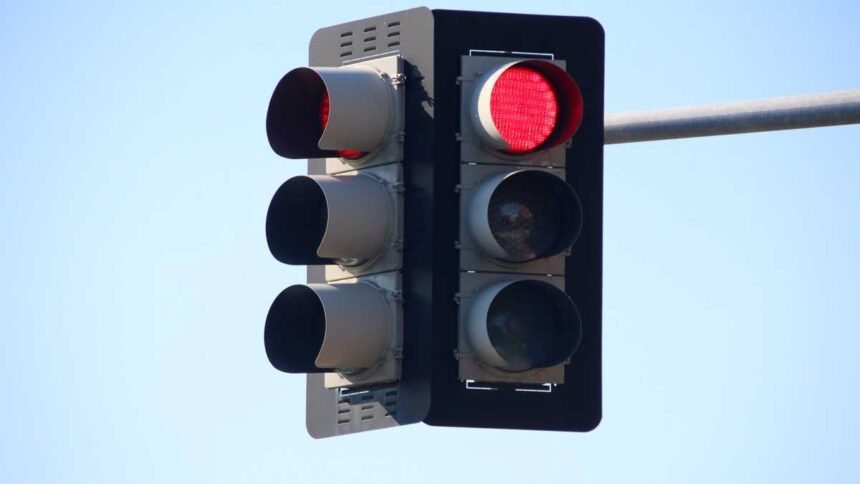Traffic is flowing differently today through four Boston intersections following the implementation of changes developed in partnership with artificial intelligence, city officials announced on Thursday. “It provides our traffic engineers with important data to tweak a signal by seconds, which can help reduce congestion along a corridor,” Jascha Franklin-Hodge, Boston’s chief of streets, explained in a statement.Boston is one of two cities in the country partnering with Google’s Project Green Light, officials said. Since the partnership began in February, it has analyzed data from hundreds of intersections to develop recommendations for optimization, which are then assessed by the Boston Transportation Department’s traffic engineers.”The technology uses AI to model traffic patterns and creates signal timing recommendations that can reduce stop-and-go traffic and emissions,” the city’s statement explained. So far, the city said that signal timing recommendations from the project were implemented at four intersections in the Fenway-Kenmore, Mission Hill, and Jamaica Plain neighborhoods. “At the intersections of Huntington Ave. & Opera Place and at Amory Street & Green Street, stop-and-go traffic has been reduced by over 50%. Cities around the world that use Project Green Light have experienced a 10% average reduction in emissions,” the city’s statement said. Additionally, the city said that working with Project Green Light has helped to ensure that monitoring infrastructure are properly working. “This innovative work with the latest technology from Google’s Project Green Light will help relieve the frustrating congestion that so many of our residents face, while helping to reduce emissions and inefficiencies on our city streets,” Mayor Michelle Wu said in a statement. The only other U.S. city partnering with Project Green Light is Seattle. “Through Project Green Light, we are using AI to help improve the lives of people in cities around the globe by reducing traffic and emissions,” said Matheus Vervloet, Product Manager at Google. “The success of Green Light is only possible thanks to the partnership we have with cities like Boston. We’re encouraged by the initial results we’ve seen in Boston and look forward to working closely with the city to scale this technology to more intersections.”
Traffic is flowing differently today through four Boston intersections following the implementation of changes developed in partnership with artificial intelligence, city officials announced on Thursday.
“It provides our traffic engineers with important data to tweak a signal by seconds, which can help reduce congestion along a corridor,” Jascha Franklin-Hodge, Boston’s chief of streets, explained in a statement.
Boston is one of two cities in the country partnering with Google’s Project Green Light, officials said. Since the partnership began in February, it has analyzed data from hundreds of intersections to develop recommendations for optimization, which are then assessed by the Boston Transportation Department’s traffic engineers.
“The technology uses AI to model traffic patterns and creates signal timing recommendations that can reduce stop-and-go traffic and emissions,” the city’s statement explained.
So far, the city said that signal timing recommendations from the project were implemented at four intersections in the Fenway-Kenmore, Mission Hill, and Jamaica Plain neighborhoods.
“At the intersections of Huntington Ave. & Opera Place and at Amory Street & Green Street, stop-and-go traffic has been reduced by over 50%. Cities around the world that use Project Green Light have experienced a 10% average reduction in emissions,” the city’s statement said.
Additionally, the city said that working with Project Green Light has helped to ensure that monitoring infrastructure are properly working.
“This innovative work with the latest technology from Google’s Project Green Light will help relieve the frustrating congestion that so many of our residents face, while helping to reduce emissions and inefficiencies on our city streets,” Mayor Michelle Wu said in a statement.
The only other U.S. city partnering with Project Green Light is Seattle.
“Through Project Green Light, we are using AI to help improve the lives of people in cities around the globe by reducing traffic and emissions,” said Matheus Vervloet, Product Manager at Google. “The success of Green Light is only possible thanks to the partnership we have with cities like Boston. We’re encouraged by the initial results we’ve seen in Boston and look forward to working closely with the city to scale this technology to more intersections.”











